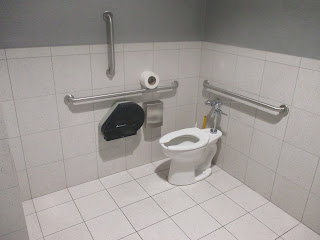Spread the word!
Habitat for Humanity of Greater Memphis’
next Aging in Place program call-in application period
Thursday, July 12, 2018 starting at 9 a.m.
To apply, applicants must call 901-322-3500 starting at 9 a.m. on Thursday, July 12 and leave a message with their name, address and phone number to receive a call back. We will call applicants back to complete applications over the phone. At that time, applicants must have all documentation required to complete their application. Applicants will be accepted on a first-qualified, first-served basis.
So spread the word to your contacts in our community! The services provided through this program are in great need to help local seniors continue to live in their own homes safely and with the dignity and respect they deserve.
You can find more information about the program on our website, www.memphishabitat.com. If you have any questions about the program, feel free to contact Shannon Morgan, Senior Program Manager, at 901-322-3510 or smorgan@memphishabitat.com.
Thank you for working with us and helping spread the word about this program!
P.S. Following the July 12 application date, we do not know when the next application period will be. We will update the Aging in Place hotline (901-322-3500), Habitat website (www.memphishabitat.com) and social media (Facebook and Twitter) once we determine the next application date.
** The funding for this project was provided through a grant awarded by the Davidson County Chancery Court, Part III from the SeniorTrust/ElderTrust settlement (Case No. 11-1548-III) and through a contract administered by the Tennessee Commission on Aging and Disability. The Aging in Place program receives additional financial support from a variety of sources, including The City of Memphis, Division of Housing and Community Development; the U.S. Department of Housing and Urban Development; and The Federal Home Loan Bank of Cincinnati.
Curb ramps are important to transportation
By Allison Donald
During the monthly MATA board meeting Gary Rosenfeld informed the board that MATA had been awarded $222,000 grant to repair and install new curb ramps. More community access is a significant development for people with disabilities who would like to ride the fixed route instead of using the expensive paratransit service. MATA has not set a timetable for the start or completion of the curb-ramp project.
“Why is MATA responsible for paying for curb ramps?” Charles Vergos board chair asked. “I thought it was the responsibility of the city to fix those things.”
Title II of the Americans with Disabilities Act (ADA) requires that state and local governments must provide curb ramps at pedestrian crossings and at public transportation stops where walkways intersect a curb. Each curb ramp must meet specific ADA standards for width, slope, cross slope, placement and other features. Curb ramps are a small but important part of making sidewalks, street crossings, and the other pedestrian routes that make up the public right-of-way accessible to people with disabilities.
Curb ramps have a specific relationship to paratransit. If a Memphis resident does not have an accessible route to their nearest bus stop, or there is not a curb ramp to make an accessible path to their destination, they cannot use the bus system like other Memphis citizens. The more expensive to operate paratransit system, MATAplus, is designed to provide “curb-to-curb” service where the fixed-route is not accessible. People with disabilities are only eligible for paratransit where they are functionally unable to use the fixed-route because of a disability.
While MATA is not responsible for curb-ramps in Memphis, the grant for curb-ramps can be a big savings for the transportation provider. If accessible routes can help just 50 people regularly ride the fixed-route instead of paratransit, we estimate that over a year, the curb ramps would pay for themselves.
A paratransit ride costs nearly $30, but MATA only recovers $3.50 per trip. The fixed-route is much less and we conservatively estimate that each paratransit trip costs about $20 more. Over the course of a year, about 220 trips, MATA would save $4,400 per rider. In a single year, 50 riders who forgo paratransit would be a savings equal to the grant for curb ramps.
Curb ramps are essential to enable people with mobility impairments to go to work, to access government buildings, to participate in recreational activities, to shop, and generally to allow individuals to travel freely through their communities. A correctly designed and constructed ADA curb ramp will enable a person with a disability to safely cross a street and to board and exit public transportation. People who use wheelchairs are not the only beneficiaries of curb ramps. Anyone for whom ambulation is difficult or painful, such as arthritis, also benefit from curb ramps as well as bikes, strollers and hand carts.
Curb ramps also provide a safe pathway for people with disabilities to travel without being in the direct line of traffic. If the sidewalk on either side of the street ends without a curb ramp, it is often difficult or impossible for an individual using a wheelchair, scooter, walker or other mobility device to cross the street. This is a dangerous situation where the person may have to travel alongside cars and other vehicles in the streets putting their personal safety at risk.
If you would like to attend the next MATA board meeting it will be Thursday July 26, 2018 at 3:30pm at 1370 Levee Road.
MCIL Accessible Scavenger Hunt at Laurelwood Shopping.

The MCIL accessible scavenger hunt visited the Laurelwood Shopping Center on Poplar this Friday. This time our goal was simplified to: Please find examples of accessibility and community inclusion.
We all met at the Panera Bread just off of Grove Park on the West side of Laurelwood. From there we split into three teams to search the area. The Laurelwood collection of stores does not have a central walking route, but it is a connected parking lots north of Poplar between Perkins Extended and Grove Park.
The first team headed directly north from the Panera Bread and examined the stores along Grove Park. They noted the wide doors that were easy to open at Talbots. They also seemed to have well-kept ramps at more than one location around the store. Inside, Talbots was spacious and had and an accessible dressing room.
The first team also noted the welcoming storefront of Frost Bakery. It had a double door, with no center post that can make maneuvering a wheelchair difficult. The team noted that the bakery smell was also very inviting.
The second team headed east. They were most impressed by Ulta Beauty. The store had an accessible counter that was not too high and made the team feel at ease. They had an accessible bathroom and Braille signs.
At LA Fitness the second team was astonished to find many accessible features. They had a unisex restroom and accessible equipment. The staff was welcoming and friendly and showed the team the accessible pool lift and accessible shower.
What the third team found most welcoming was the personal attitude at Hot Yoga. The individual in the store personally welcomed the team and introduced them to the owner. They expressed their belief that Yoga did not leave anyone out and invited the team for a free hot class.
Team three also noted the welcoming and accessible ramps. Many were wide and provided access for the general foot traffic as well as being welcoming to a person with a mobility impairment. The route from the bus stop was clear and accessible. Most notably was the raised concrete accessible routes from the accessible parking spaces. It was clear that the parking at Nordstroms made people with disabilities feel that they were to be included at the store.
Many of the participants noted that it was a lot easier to look for what is wrong. Even as we all looked for examples of accessibility, it was often easy to see what did not meet our expectations. We did not record barriers we found as an exercise in trying to find what works and what we all find welcoming and inclusive. Everyone also made mental notes however, of what places did not seem to have access and the spots that did not seem to be inclusive.

Gary Rosenfeld discusses public transportation issues with advocates

Gary Rosenfeld, the CEO of MATA visited MCIL to reinforce the partnership MATA has with MCIL. He took the opportunity to update MCIL on our request to give free fare to MATAplus riders who ride the fixed-route.
“Free fare is a great idea,” said Mr. Rosenfeld, pausing, the crowd expecting him to follow the phrase with a ‘but’. “I’m pausing for dramatic effect, because it is a great idea. Everyone likes it. The MATA commissioners and the City Council.”
Mr. Rosenfeld pointed out that he is expecting a ruling from the FTA. He said the FTA approval was essential before he can roll-out the free fare program and he estimated that they would write a simple policy once they got the go-ahead from lawyers. MATA believes that it was still at least a couple of weeks before the free fare policy would be active.
Rosenfeld also argued that MATA would be ready to meet the needs of people who applied for MATAplus in an effort to get the free fares. He said that MATA staff was ready to handle the influx of new applications and that he believed that if people were eligible for paratransit service they should be able to apply and receive the free fares.
In October of last year, MCIL had written Gary Rosenfeld a letter proposing the idea of free fares for certified paratransit riders to ride the fixed-route. We had made the proposal as a way for MATA to develop “conditional eligibility” as a way to improve MATAplus. Mr. Rosenfeld did not add a move toward conditional eligibility with the free fare program.
Allison Donald asked Mr. Rosenfeld about the illegal capacity constraints that riders see on MATAplus. She pointed out some areas of minimal compliance with the ADA and that MATAplus is unable to meet like denying trips and not answering the phone. These areas where MATAplus seems to have limited capacity make paratransit service unequal to the service on the fixed-route.
The MATA CEO began his response to the capacity constraints by directing some of the blame to riders. He seemed to think that the 25% rate of cancellations contributed to MATA’s inability to effectively serve the community although the people were using the MATAplus cancellation policy.
Mr. Rosenfeld went on to list some of the changes he has overseen to boost the capacity of the paratransit system. MATAplus should have 8 new operators starting soon to go with the new reservation specialists he announced at the MATA Board of Commissioners meeting. He also said that paratransit serves less than 3% of the overall MATA ridership, but takes up about 17% of the budget.
An MCIL volunteer asked about stop announcements made on MATA fixed-route buses. He had sent a letter to MATA two years ago detailing the requirements of the auditory announcement system. He finished his question by adding that it was frustrating that it is a legal requirement and nothing has been done.
Every MATA bus appears to fail to meet the basic federal requirements for making stop announcements. These stop announcements are critical to help people move from paratransit to the fixed route. MCIL made it clear that having compliant stop announcements was very important to the disability community.





